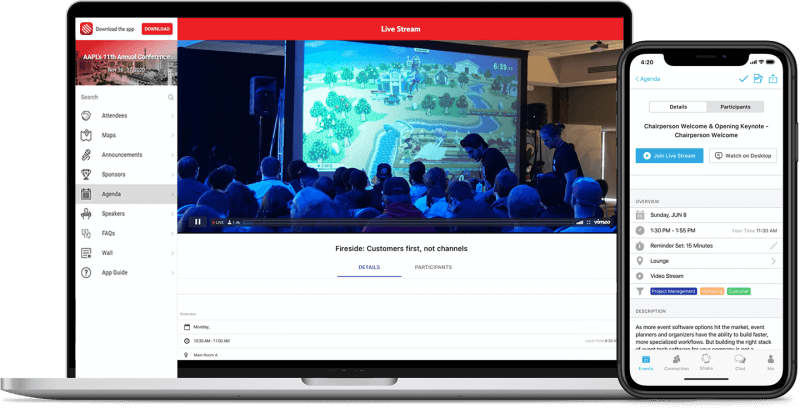Your prospective borrower’s creditworthiness is certainly important, but also be sure you have a good understanding of their commitment to risk management.
Everyone in the lending industry should be familiar with the “5 C’s of Credit”: character, capacity, capital, collateral and conditions. They are the foundational principles that a prospective borrower’s creditworthiness rest upon.
In the real estate lending industry, in addition to evaluating the borrower’s background, experience and creditworthiness, you need to consider the asset itself and who your borrower will be allowing on the premises. If you lend in the wrong part of town or select a borrower who does not act with a loss prevention mindset, your investment can literally go up in smoke.
As you select which properties to lend on and who to lend to, ask yourself these five important questions.
- How well do you know the property?
You should be as familiar as possible with the asset on which you are lending. This can sometimes be challenging if that asset is not in the same state. If you aren’t overly knowledgeable about the area, you will need reliable methods for collecting
demographic information. Does the service you use deliver all the data points you need to make a wise decision? How granular is the data on median income, crime and occupancy, for example? Tools like RentFax can be very helpful for gathering solid data on the potential asset, especially if you are lending on a property that is several states away. Whether you are near or far, you will want a clear picture of any factors that influence the financial success of a real estate project.
- Does your borrower have a property manager and, more importantly, is it a good one?
Many investors find it challenging to hire a reliable property manager. Good ones can increase the profitability of a rental, and a bad one can lead to a host of problems. If the property manager neglects routine maintenance, major systems like the HVAC, electrical or plumbing will need to be replaced more often, putting stress on your borrower’s ability to pay you. Leave tenants too much to themselves and they may move in long-term guests who are not on the lease, damage the property with their lack of cleaning or culinary skills or just skip town in the middle of the night, door left wide open. If a vacant property is left unmonitored, break-ins are almost guaranteed and can leave a property open to becoming a drug lab or subject to arson. Skilled management can eliminate nearly all these potential issues and keep the asset on an upward swing in value.
Make sure you know and vet your borrower’s property manager. Any reputable property manager should have:
- The proper licensing and insurance.
- A thorough screening process for tenants.
- Written maintenance procedures and a schedule for routine inspections (drive-by and walk-through).
- A secure and reliable method for collecting rents.
- A written plan for late fees and evictions. This may include a Cash-for-Keys program to help reduce losses in the event a tenancy doesn’t work out.
- A track record for successful management and a list of enthusiastic testimonials.
*For more detailed information on choosing a quality property manager, visit www.affinitylps.com/5-cs-to-choosing-a-quality-property-manager
- If your borrower will be self-managing the property, how capable are they at management?
It may or may not be of benefit to have your borrower oversee everything about the property. The borrow certainly has a greater vested interest in its profitability than a property manager who only collects 10 percent of the monthly rent for their fee. That stated, if your borrower has a large portfolio, they could overstretch themselves in their ability to adequately manage each asset. How do they schedule their time for all the activities that running a successful real estate investment business involves? For example, do they vet prospective tenants thoroughly, or do they rush the process so they can get a renter placed quickly?
Examine your borrower’s process for screening renters and make sure it involves at least the following:
- Background check
- Credit check
- Employment history
- Current employment/adequate income (typically 3x the monthly rent)
- References from former landlords
- A brief visit to their current residence to assess its condition and meet any pets

- If you are lending on a rehab project, are the contractors your borrower hires skilled and responsible?
If the property on which you lend is going to be renovated, do you know who is going to have full access while the work is being done? Can you trust the contractors or subcontractors your borrower has hired? Do they do the work safely? You don’t want to incur the additional risk of becoming tangled in a mess of faulty workmanship or party to a lawsuit because someone is injured during the rehab.
Consider the following:
- Has your borrower worked with this particular contractor or group of subcontractors before?
- How long have the general contractor or any subs been in business?
- Do the contractors have a good reputation with other professionals in their industry? A solid body of professional and client references?
- Do both the general contractor and any subs carry licenses and insurance appropriate to the type of work they are doing?
- Were there any problems with prior projects? With the schedule? With the quality of the work?
- Has anyone ever been injured on the job site?
- Does your borrower pay contractors on time, so you are protected from liens being placed on the properties?
- How will the property be monitored and secured during the time it is vacant?
There is perhaps no more vulnerable time for a property than when it is sitting vacant between tenants, in the time before renovations or even sitting on the market for sale.
For this reason, your borrower must have a concrete plan in place for securing the
property while it is vacant.
They should be able to tell you:
- Whether they plan to board it up if it will be vacant for a significant period.
- Whether they are prepared to board it with the materials the city requires if that’s different from a traditional plywood board-up.
- How quickly locks are changed after a tenant moves out.
- How else the property will be secured. Will there be an alarm? Will door and window reinforcements be used?
- If they have a good relationship with the neighbors, so they can have additional sets of eyes on the property.
- The plan for keeping the property maintained so it looks as lived in as possible. Will there be scheduled lawn maintenance? How will the mailbox be kept free of overflowing mail?
- Whether they will they be shutting off the water to prevent water damage from a burst pipe, or worst-case, if the property gets broken into?
Your prospective borrower’s creditworthiness is certainly important, but also be sure
you have a good understanding of their commitment to risk management. Knowing what measures they will take to protect the property and being able to trust the people your borrower allows on the premises is crucially important. Don’t overlook the questions asked above. A solid borrower should not be frustrated or become nervous if you ask a few extra questions. ∞












Leave A Comment